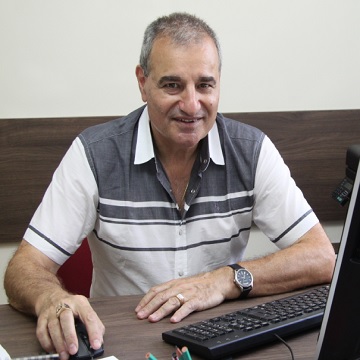Scientific Program

Krassimir Metodiev
Medical University, Bulgaria
Title: Immunotherapy of cancer: Some up-to-date approaches
Biography:
Krassimir Metodiev has over 300 published papers in international journals, as well as over 100 participations in congresses, conferences and symposia world-wide. His expertise is immunology of organ transplantation, immunology of cancer, immunodeficiency, risk infections and bioterrorism, clinical microbiology, immunologic monitoring of post-transplant periods, etc. He is a member of a number of international societies and organizations, President of IMAB, Vice-Ptesident of FESCI, Board member of ISC, ICHS, ESAO/ISAO, member of ESCMID, EANO, etc. Member of the Board of several international journals.
Abstract
Treatment of cancer is currently based on three main modalities: surgery, radiotherapy and chemotherapy. Most solid tumours can only be cured at an early stage, due to the lack of effective systemic treatment. Surgery and radiotherapy are highly effective for eradicating localized tumours, but unfortunately cannot target disseminated disease. Chemotherapy represents systemic treatment, but the clinical use of current drugs is to a large extent hampered by their limited specificity. Over the last two decades, immunotherapy has emerged as an interesting novel approach. Contrary to the traditional treatment modalities, the immune system combines inherent specificity with a systemic range of action. The term “vaccine” is traditionally used to describe substances that protect against the development of infectious diseases. In cancer therapy this term refers to both therapeutic and prophylactic approaches for eliciting immunological and anti-tumour responses. Prophylactic vaccines have only been developed in a few cancer forms, mainly cancers related to viral infection, such as cervical and hepatocellular carcinoma. Therapeutic vaccines, given to patients after the development of the disease, are however investigated in a number of cancer forms. Some of the therapeutic vaccines may also be used for prophylaxis, particularly in patients with increased risk of cancer process. This presentation throws light and depicts the international experience of a number of distinguished researchers in the field of development and testing of vaccines against some tumours, mainly malignant melanoma and prostate cancer. The author analyzes the experience and the research projects worked out in the Dept. Cell Therapy of the University hospital Radium (Inst. Cancer Research, Oslo, Norway) by the team of Prof. Gunnar Kvalheim, Prof. Jon Amund Kyte, Prof. Jahn Nesland, the Bulgarian immunologist Biol. Paula Lazarova and the author himself for the last several years. The colleagues from Radium have utilized gene-transfer technology for developing vaccine therapy with dendritic cells transfected with tumour-mRNA. These vaccines are designed to combine the immunostimulatory capacity of dendritic cells with the antigen repertoire of tumour cells. There are two approaches to the project: preclinical/experimental evaluation and clinical trials on patients, which are thoroughly discussed in the present paper.
- Allergy & Asthma
- Food and Skin allergy
- Clinical Immunology & Paediatric Allergy
- Dermatology and Aesthetic Medicine
- Gastrointestinal immunology & Ocular Allergy
- Allergy Prevention, Risk Factors & Treatment
- Allergy Diagnosis & Medicine and Veterinary Allergology
- Infectious diseases and Syndromes
- Allergy with Inflammation & Immunotherapy
- Biomarkers for Allergy and Asthma
- Veterinary Allergology
- Immunology and Immunological disorder/diseases
- Cancer Immunology & therapeutics

